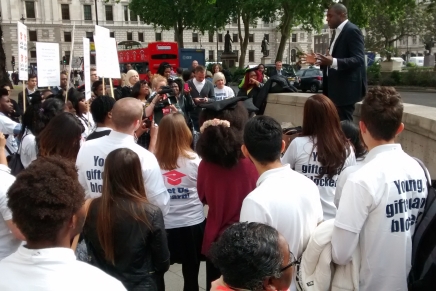Children’s rights aren’t usually the first thing people think about in relation to Brexit. In fact it’s striking how little attention there’s been on the possible impact on children. The Government’s focus (perhaps unsurprisingly) has been on the exit negotiations, future trade deals and the Irish border.
But there are also other issues at stake that have potentially profound consequences for the lives of children. CRAE, in coalition with other organisations across the sector, has been working hard to draw attention to these as the EU (Withdrawal) Bill goes through Parliament. We want to ensure the UK doesn’t go backwards in children’s rights protections as a result of our departure from the EU.
Legislation and protections derived from UK membership of the EU affects many aspects of children’s lives – from consumer and environmental protections, food safety and labelling, paediatric medicines, immigration, cross-border safeguarding and anti-trafficking cooperation.
The EU is also underpinned by human rights, including the UN Convention on the Rights of the Child (UN CRC). Article 3(3) of the Treaty on European Union enshrines the objective of the EU to promote and protect the rights of the child. The EU Charter of Fundamental Rights also guarantees the protection of children’s rights by EU institutions and by EU member states when they implement EU law.
As the EU (Withdrawal) Bill currently stands, the Charter will be excluded from retained EU law after Brexit. This has been raised as a major concern by the Equality and Human Rights Commission, human rights organisations, such as Amnesty International and Liberty, as well as CRAE and our sister organisation Together, the Scottish Alliance for Children’s Rights. The Charter is of crucial importance for children. It includes rights enshrined in the UN CRC - such as the right to care and protection, to express views freely, and the principle of children’s best interests being a primary consideration in decision-making. It matters because children’s rights enshrined in the Charter have been translated into practice through EU legislation, policy and case law. This has included areas as diverse as legislation on cross-border family law through to policies designed to tackle child obesity.
The government has said it’s fully committed to the UN CRC, that it takes ‘children’s rights extremely seriously’ and ‘will ensure that we establish the best approach to them in both the negotiations and our own domestic law.’
However, we’re concerned that the current proposal to allow Government delegated powers to amend, repeal or introduce EU-related legislation (so-called ‘Henry VIII’ powers) would mean that decisions made post-Brexit, that affect children, could be made with little or no parliamentary scrutiny. For example, under current EU law, trade in goods and services between Member States have to ensure the protection of the welfare of children. If the UK leaves the Customs Union and embarks on new trade deals without a mechanism to ensure that any new deals includes adequate safeguards, children could be put at risk.
We are therefore supporting efforts by members of the House of Lords to both ensure the Charter is part of retained EU law and for the government to make a Ministerial Statement of commitment that it will give due consideration to the UN CRC in EU-related decision-making, during and after Brexit. This is particularly important as the UK has not fully incorporated the Convention into domestic law. Legislation such as the Human Rights Act and the Children Act 1989 – as important as they are – do not offer fully comprehensive rights protections for children. A Ministerial commitment would demonstrate a clear willingness to ensure that there will be no ‘going backwards’ in children’s rights protection after exit day.
